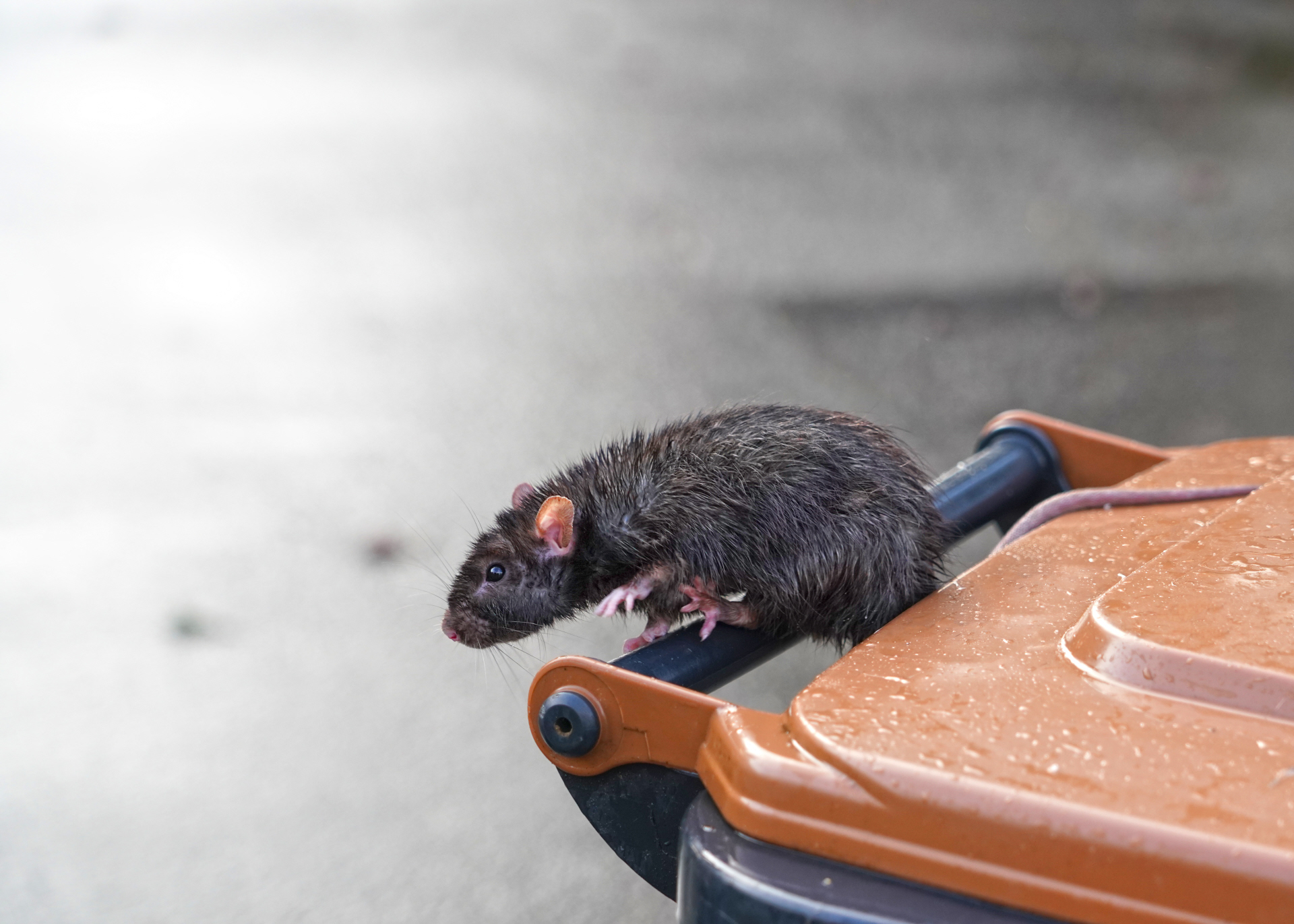Finding pests in your home or garden is an unpleasant (and if ignored, potentially costly) experience. The aroma from rotting waste in your bins is attractive and enticing to pests, and often the very reason pests are drawn to your property. We all need to dispose of waste so how do we stop these uninvited guests from feasting on the waste in our bins?
In this article, we give useful tips and advice as to how to keep these troublesome pests out of your bins.
Keep A Lid On It
This might seem obvious but it’s the lid of the bin that is the first line of defence against pests and having it closed when not in use is the most effective method of keeping them out. Ensure that each time you open the bin to dispose of waste, the lid is shut tightly afterwards. If your bin has an independent lid (i.e not a hinged one, like a wheelie bin), it would be wise to check it fits snugly and correctly, leaving no gaps around the seal.
Don’t Overfill Your Bins
We’ve all done it, especially at busy times of the year. Filled our bins to bursting with the lid propped open by full bin bags. Although it’s tempting to stuff as much rubbish in the bin as possible, any gaps left by the bags are entry points for pests. Try to flatten large refuse items or use the local tip if you have excess waste. If you are able, getting inside the bin to squash rubbish down even further means the lid will close and the pests stay out. Don’t pile excess rubbish beside the bin. Rats, mice and various insects will see this as a delicious buffet laid out, waiting to be sampled.
Bag It, Bin It
The phrase ‘Bag it, bin it’ is very relevant here. Always bag any waste before it goes in the bin, especially food waste (in biodegradable compostable bags before adding to your food caddy). Any loose waste will smell more than if it were sealed in bags and will therefore attract pests. Bags should be tied tightly shut before being put in the bin so that the contents can’t leak out and pests can’t get in.
Stay On Top Of Household Waste
Although you may not have a huge amount of household waste each week, it’s wise to empty your kitchen bins on a regular basis regardless. Allowing waste to build in your home attracts flying insects in the warmer months and any mice or rats looking for a quick meal could be drawn into your home. Empty bins at least twice weekly, ensuring that you seal or tie bags tightly shut and dispose of them in your outside bin immediately.
Clean Your Bins
Cleaning your bins on a regular basis is not only good hygiene practice but also means that any food waste residue gets removed on a regular basis. This applies to both your inside bins as well as your external ones. Rotting food in the bottom of your bin might turn your stomach but is a smorgasbord of delights to pests. There are many companies offering bin cleaning services, if you don’t have the time or heart to do your own or consider buying wheelie bin liners to protect your bin from stray food residue.
Ensure That You Get Your Own Bin Back
As they all look the same, it’s all too easy to find yourself in possession of a neighbour’s bin when the bins are returned after emptying. Whilst this may not seem too big of an issue (it’s just a bin after all), not everyone will have the same exacting standards of hygiene as you. No-one wants to get a dirty bin back in the place of their own – as previously shown, a dirty bin attracts pests. Placing identification in the form of a house number or other clearly marked features on your bin can ensure that your bin is returned to you.
Need Assistance With Pest Control?
We hope this article has given you some useful tips on keeping pests away from your bins. If, despite your best efforts, you do find pests on your property, we’d be only too glad to help. We offer pest control and advice on prevention and offer our services for both domestic and businesses premises in Northampton, Daventry, Rugby, Market Harborough, Towcester, Brackley, Wellingborough, Kettering, Corby, Olney and all of the surrounding areas. Our team of specialists are available both evenings and weekends at no extra cost. Should you require assistance call us on 01604 328545 , email [email protected] or use our simple contact form.


One thought on “Keeping Pests Away From Your Bins”